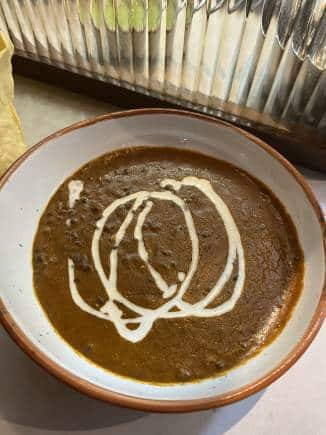



Discovery of the new is what characterizes the entire history of the human race. As homo sapiens, we are wired to search for the next new thing. It could be the next idea; or it could be the next meal. Few industries have tapped into this primordial instinct to search for the new as astutely as F&B. Dozens of new restaurants open every year with the promise of offering you a unique meal from an exotic land. As the ‘source local’ trend caught on, chefs have proceeded to create exotic meals from locally sourced ingredients. All of this has made the dining landscape in metros very exciting, indeed. You could, hypothetically, start your week with a Peruvian meal and end it with one where local millets are the heroes. But every once in a while, even the most experimental palette craves the taste of the familiar. The newly opened Jhelum in Bandra, Mumbai, aims to satiate those cravings.
Jhelum claims to offer its diners the cuisines of regions along the river. This is, of course, a great idea. Kashmiri food remains largely inaccessible in a city like Mumbai. So, the prospect of trying out, say, rogan gosht is enticing. However, when asked for recommendation, the restaurant offered a host of dishes that fall firmly in the realm of ‘north Indian food’. There were kebabs, of course, followed by mutton chaap, butter chicken, gosht nihari, dal makhni, and the likes.
 Dal Makhani at Jhelum
Dal Makhani at JhelumJhelum’s food doesn’t wander into the realm of experimentation. There is no talk of ingredient-first dishes and no attempt to exoticize the meal. On the menu itself, no descriptions are offered under each dish because, really, doesn’t everyone know what a dal makhni or a butter chicken is?
What Jhelum does is it takes the predictable dishes you are so used to eating at your local Punjabi restaurant and places them in a bright pastel pink setting with a sunroof. In it, Jhelum challenges the idea that to eat Indian food, your restaurant needs to ‘look Indian’.
So, there are no bolsters, no copper-plated cutlery or metal plates. All the trappings of the stereotypes have been carefully cut out of the décor. The tiny tables and cute chairs further lend Jhelum a very Gen Z/first date vibe. What you get, therefore, is a place that looks like a European café but serves decidedly non-European, stereotypically traditional Punjabi food.
In that it is a reflection of its owner, the 24-year-old Abhay Chhabra who cut his teeth at a young(er!) age in his family business, a chain of neighbourhood restaurant/bars called New Neelam. It is easy to see that young Chhabra (who also has some experience in running night clubs, etc.) is trying to come into his own.
Yet, unbeknownst to him, Chhabra remains shackled to the old ways of doing business. The tiny sub-750 sq ft space is packed with 10 tables that can accommodate up to 30 people. Add to it, the staff comprising four servers in a packed house and Jhelum can become a very crowded place very quickly. Even if your date is down for butter chicken on their first meeting, good luck trying to have a conversation over the din of the restaurant and the traffic outside.
Even though Jhelum fails at a conceptual level, the food itself hits the spot. It does so because it is familiar, even if it is not exceptional. The meat falls off the bone, the flavours are not overpowering. It can be oily as north Indian restaurant food can sometimes be, but isn’t that exactly why you order in a chicken tikka masala, raan, or dal makhni?
For several years now, biryani has been topping the list of dishes that Indians order in from food-delivery apps. Look up any of the Zomato annual roundups and you’ll find North Indian food to be a crowd favourite. This is not surprising; we love our masalas. But with the convenience of delivery apps, would we care to get dressed and head out into the traffic-ridden warzone that is Bandra West?
Jhelum’s price point (Rs 1,500 for a meal for two; the restaurant doesn't serve alcohol) and its location on the congested intersection of Pali Naka, just a few doors away from that legendary and appropriately named dive bar Janata will ensure a steady stream of diners from the neighbourhood. That, combined with home deliveries, will help Jhelum break even in as little as six to eight months, as Chhabra predicts. It may not, however, succeed in becoming a cool hangout for hip young folk like himself.
Great brands, like Rome, are not built in a day. Their success hinges on a unique proposition, immense patience, and a slow-burn strategy. It is a tricky balance that’s rarely struck. But every once in a while, when the stars do align, it is poetry.
And so, even though, I have little doubt that Jhelum will do good business in the months and years to come, it may not find itself on the top of your recall list, the next time you find yourself wondering where to eat in Bandra.
Discover the latest Business News, Sensex, and Nifty updates. Obtain Personal Finance insights, tax queries, and expert opinions on Moneycontrol or download the Moneycontrol App to stay updated!
Find the best of Al News in one place, specially curated for you every weekend.
Stay on top of the latest tech trends and biggest startup news.